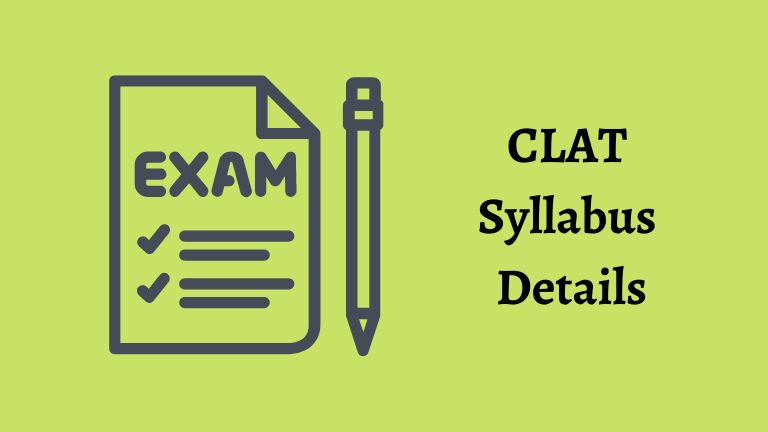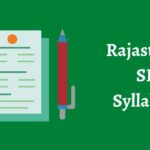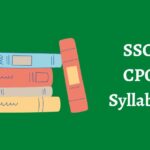CLAT Syllabus 2022 – The Consortium of National Law Universities (NLUs) has defined the CLAT syllabus for UG and PG. However, the UG CLAT 2022 syllabus comprises five sections – English language, current affairs, including general knowledge, legal reasoning, logical reasoning and quantitative techniques. On the other hand, the CLAT PG syllabus is based on the main subjects of the LLB programme. However, the authority has discharged the registration for CLAT 2022 and can complete it by March 31, 2022. So, CLAT candidates can review the details of the CLAT syllabus 2022 mentioned below.
CLAT 2022 Syllabus (UG & PG) – General Overview
|
UG Syllabus |
CLAT LLM Syllabus |
|
English Language |
Constitutional Law, Jurisprudence, Administrative Law |
|
Current Affairs, including General Knowledge |
Law of Contract, Torts, Family Law, Criminal Law |
|
Legal Reasoning |
Property Law, Company Law |
|
Logical Reasoning |
Public International Law and Tax Law |
|
Quantitative Techniques |
Environmental Law, and Labour & Industrial Law. |
Detailed UG CLAT Syllabus 2022
Hence, students appearing for UG-CLAT 2022 should refer to their syllabus while preparing for the examination. As mentioned above, the UG CLAT syllabus 2022 has five sections. Basically, each section carries a fixed weightage in the study. The details of section-wise mark allotment are given below.
CLAT 2022 Syllabus – Section wise distribution of questions
|
Subjects |
Number of Questions |
Marks |
|
English Language |
28-32 questions |
28 – 32 |
|
Current Affairs, including General Knowledge |
35-39 questions |
35 – 39 |
|
Legal Reasoning |
35-39 questions |
35 – 39 |
|
Logical Reasoning |
28-32 questions |
28 – 32 |
|
Quantitative Techniques |
13-17 questions |
13 – 17 |
|
Total |
150 |
150 |
Section-wise Details of UG-CLAT Syllabus 2022
Hence, UG-CLAT is an understanding based paper.Basically, In each section, multiple-choice type questions are asked from the understanding passages. Students will have to read the course carefully to respond to the questions. In math and logical reasoning, you can ask questions from diagrams that represent some data or information. Section-wise CLAT syllabus is given below.
CLAT 2022 Syllabus for English Language – Overview
|
Particulars |
Important details |
|
Total weightage |
20% |
|
Type of questions asked |
Comprehension-type passage-based questions |
|
Source material or content of passages |
Passages of around 450 words will be drawn from contemporary / historically significant fiction & non-fiction writing |
|
Ability tested |
|
|
Standard of questions |
12th standard |
What should I study?
The wording section of CLAT 2022 will require careful preparation. Candidates will have to grow fast reading skills and understand complex textbooks. The subsequent study materials will help the candidates in qualifying for this area.
- Word Power Made Easy by Norman Lewis
- High School English Grammar and Composition by Wren & Martin
- English newspaper – The Hindu or The Indian Express
- Editorials and articles are given in newspapers and magazines
CLAT Syllabus for General Knowledge and Current Affairs – Overview
|
Particulars |
Important details |
|
Total weightage |
25% |
|
Type of questions asked |
Comprehension-type passage-based questions – Static general knowledge and current affairs |
|
Source material or content of passages |
News, journalistic sources, and non-fiction writing. |
|
Ability tested |
Awareness of the following topics
|
|
Standard of questions |
12th standard |
What should I study?
The CLAT general knowledge and current affairs unit guide abstract learning instead of rote learning. Students will have to prepare for this section in a detailed way. Reading newspaper articles and editorials is an important part of CLAT preparation. The following study material can be referred to while preparing for CLAT current affairs and general knowledge.
- Lucent’s General Knowledge
- Pratiyogita Darpan
- Newspapers – The Hindu or The Indian Express or any other good newspaper
- Websites on current affairs for CLAT and UPSC Civil Services
- NCERT books for understanding basic geography, history, polity and economics
CLAT Syllabus for Legal Reasoning – Overview
|
Particulars |
Important details |
|
Total weightage |
25% |
|
Type of questions asked |
Comprehension-type passage of 450 words each followed by objective type questions |
|
Content of passages |
Fact situations or scenarios involving legal matters, public policy questions, or moral philosophical inquiries. |
|
Focus area |
|
|
Standard of questions |
12th standard |
CLAT Legal Aptitude – What to Study?
Basically, Legal aptitude is one of the most important areas in CLAT 2022. However, it will have questions trying the prospect’s understanding of the law and its various aspects.So, The legal facility section will test the knowledge of the law on the one hand and the candidate’s awareness of existing legal matters on the other hand. Thus, nominees will have to qualify for both types of queries, referring to subsequent study materials and topics for CLAT lawful aptitude.
- Bare Acts of the Indian Constitution
- Legal Awareness and Legal Aptitude via AP Bhardwaj
- Also, Universal’s CLAT Guide
- Newspapers – The Hindu or The Indian Express
- Websites on current affairs for CLAT and legal issues
Important topics for CLAT Legal Aptitude
- Indian Constitution – Fundamental Rights, Duties, and also, Judiciary, Parliament, Directive Principles of State Policy, also, Local governments
- Important amendments and provisions
- Important judgments
- Current legal affairs
CLAT Syllabus for Logical Reasonings – Overview
|
Particulars |
Important details |
|
Total weightage |
20% |
|
Type of questions asked |
Passage-based (300-word long) objective questions |
|
Content of passages |
Based on sets and arguments, puzzles, diagrams, relationships and others |
|
Skills to be tested |
|
|
Standard of questions |
12th standard |
What should I study?
MOREOVER, to prepare for CLAT logical reasoning, candidates will have to practice the questions asked in the examination. A few topics of logical reasoning are included in the CLAT syllabus. Candidates will need to identify them by solving previous year’s questions and then rehearse questions equal to the following for CLAT logical reasoning.
- Verbal and Non-Verbal Reasoning by RS Aggarwal
- Analytical and Logical Reasoning by R.S. Aggarwal
- Analytical Reasoning by MK Pandey
Important topics to study
Therefore, we are giving advice to study on these topics. so, you have to get good marks on the examinations. So, let’s see the major topics:
- Analogies
- Series
- Also, Seating arrangement
- Syllogisms
- Moreover, blood relations
- Logical sequences and matching
- Also, Calendars and clocks
CLAT 2022 Syllabus for Quantitative Techniques
|
Particulars |
Important details |
|
Total weightage |
10% |
|
Type of questions asked |
|
|
Skills to be tested |
|
|
Standard of questions |
Class 10th |
What should I Study?
However, like logical reasoning, preparation for CLAT maths will require a lot of practice. So, Candidates are counselled to answer previous year’s papers to understand the questions asked in this section. Meanwhile, candidates should refer to the books below to learn basic mathematical operations.
- Quantitative Aptitude by RS Aggarwal
- Elementary Mathematics with Numerical Ability
- Also, the Class 10th NCERT Textbook
Important topics to be covered
Candidates should try to improve their numerical skills by practising questions from the following topics.
- Ratios and proportions,
- Basic Algebra,
- Also, Mensuration
- Statistical estimation
- Moreover, Algebra
CLAT LLM Syllabus 2022
Hence, at the postgraduate level, the CLAT LLM syllabus contains major subjects of LLB (3-year LLB and 5-year LLB). So the topics included in the syllabus are below.So, let’s have a look
- Constitutional Law
- Law of Torts
- Also, Administrative law
- Criminal Law
- Family law
- Labour and industrial law
- Moreover, Property law
- Public International Law
- Also, Jurisprudence Company Law
- Intellectual Property Law
- International LawTax Law
- Moreover, the Law of Contracts Environmental law
CLAT LLM Question Pattern 2022 – Test structure
Therefore, the CLAT LLM will have one section – The objective section. However, there is no descriptive section. Moreover, the correct area will have 100 multiple-choice questions, each having one mark.
|
Subjects |
Number of MCQ questions |
Marks |
|
Constitutional Law |
60 |
60 |
|
Other Law Subjects include Contracts, tort, Criminal Law, International Law, IPR and Jurisprudence. |
60 |
60 |
|
Total |
120 |
120 |
CLAT Exam Pattern 2022
Therefore, the student should also be aware of the CLAT test pattern. Moreover, which carries details such as the number and types of questions asked in the exam.MOREOVER,, test format, marking scheme, also, test duration and other related information. It helps students in making informed decisions regarding their CLAT preparation. Candidates can review the exam pattern details below.So, lets see
|
Particular |
CLAT UG |
CLAT PG |
|
Mode |
Offline, pen and paper-based |
Offline, pen and paper-based |
|
Duration |
Two hours |
Two hours |
|
Language |
English |
English |
|
Type of questions |
Multiple choice type questions from comprehension passages |
Multiple choice type questions from comprehension passages |
|
Number of questions |
150 |
Objective section – 120 questions Descriptive section – N/A |
|
Marking scheme |
Each question will carry one mark. And also, Any incorrect answer will invite a penalty of 0.25 marks. |
Every multiple-choice question will carry one mark For objection questions, each incorrect answer will invite a penalty of 0.25 marks. |
|
Total marks |
150 |
120 |
| Read Also: UGC Net Syllabus Subject Wise, Exam Pattern – 2022 |
Frequently Asked Questions on CLAT Syllabus 2022
#1. What type of questions will ask in CLAT 2022?
Ans: Therefore, in CLAT 2022, we will ask objective questions from comprehension passages.
#2. How many questions came up in CLAT UG 2022?
Ans: Therefore, In CLAT 2022 UG, we will ask 150 questions. Per question, it will bring 1 mark.
#3. Are there any negative markings for CLAT 2022?
Ans: Yes, these exams have negative markings. Basically, a negative marking of 0.25 marks will be applicable in CLAT 2022. However, which will remove no prints for unanswered questions.



